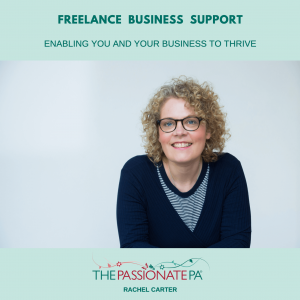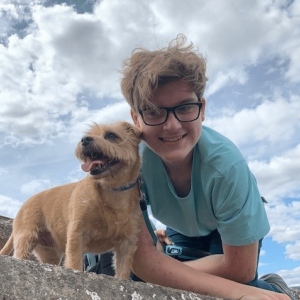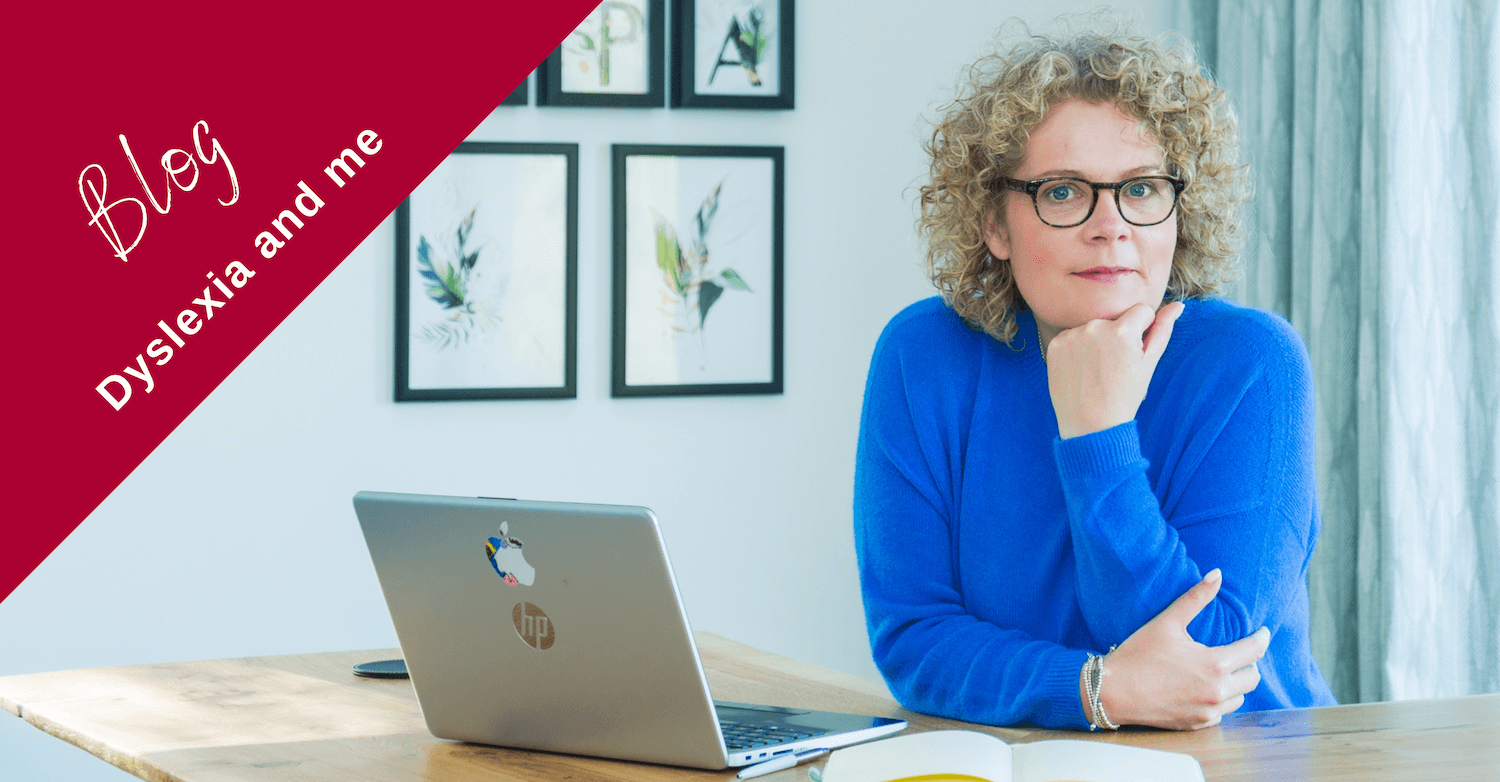 Rachel is our Passionate PA based in Cheltenham. She joined us in October 2022 and now specialises in helping neurodiverse entrepreneurs achieve incredible things in business. She is an ADHD qualified VA and works with senior charity leaders who have dyslexia and ADHD.
Rachel is our Passionate PA based in Cheltenham. She joined us in October 2022 and now specialises in helping neurodiverse entrepreneurs achieve incredible things in business. She is an ADHD qualified VA and works with senior charity leaders who have dyslexia and ADHD.
In this blog, she shares her personal experience of dyslexia and how she believes it’s actually brought her to where she is today.
Dyslexia and me
I am not usually one to share lots of very personal insights, but this is a subject I am hugely passionate about and feel it’s an important topic to put out there for thought and discussion.
Whilst I have never been formally diagnosed with Dyslexia, all the signs are there and indicators to suggest this to be the case.
For me, school was literally hell. I was ridiculed by teachers, told I was stupid and repeatedly asked why I couldn’t I just get on with the work like all my peers. No empathy was ever shown for the struggles I faced. I clearly remember the day I met the so-called “Careers Advisor” who said I was only capable of working in a minimal job and warned me not to aim too high. You can only imagine how that 15-year-old felt when she had such big dreams for the life ahead of her.
Taking Charge
However, I am very stubborn and not one to give up. Going to college was a revelation to me, I had teachers who understood me. I was taking a course that I loved, and set on a career path that would bring me to where I am today – running my own successful business, partnering with ambitious business owners.
Through sheer determination, I wanted to find my place in the world and prove to that Careers Advisor and the misguided educators of my youth how wrong they were about me and what I could offer the workplace.
21st century definition of dyslexia
Credit to Made by Dyslexia
“Dyslexia influences as many as 1 in 5 people and is a genetic difference in an individual’s ability to learn and process information. As a result, dyslexic individuals have differing abilities, with strengths in creative, problem-solving and communication skills and challenges with spelling, reading and memorising facts.
Generally, a dyslexic cognitive profile will be uneven when compared to a neurotypical cognitive profile. This means that dyslexic individuals really do think differently.
Traditional benchmarking disadvantages dyslexics, measuring them against the very things they find challenging”.
There are 6 Dyslexic Thinking Skills:
VISUALISING: Interacting with space, senses, physical ideas and new concepts. (75% of dyslexics are above average at Visualising).
- Moving:physical interpretation and game playing. Examples: Dancer, Musician, Sports player.
- Making:visualising, planning and making. Examples: Engineer, Architect, Craft worker, Programmer, Designer, Chef, Gardener.
- Inventing:exploring possibilities, making connections and inventing. Examples: Scientist, Technologist, Entrepreneur.
IMAGINING: Creating an original piece of work, or giving ideas a new spin (84% of dyslexics are above average at Imagining).
- Creating: creating completely original work from your imagination. Examples: Designers, Artists, Composers, Writers.
- Interpreting:using imagination to give ideas a new twist or bring out a fresh angle. Examples: Actor, Advertiser, PR, Director, Photographer.
COMMUNICATING: Crafting and conveying clear and engaging messages. (71% of dyslexics are above average at Communicating).
- Explaining:assessing situations/information, and explaining clearly to other people. Examples: Journalist, Marketeer, Politician, Teacher, Campaigner.
- Story-telling:creating vivid and engaging experiences in words, pictures or other media. Examples: Author, Writer, Games Developer, Song Writer, Film Maker.
And that’s not all – other skills include:
REASONING: Understanding patterns, evaluating possibilities and making decisions. (84% of dyslexics are above average in Reasoning).
- Simplifying:understanding, taking apart and simplifying complex ideas and concepts.
- Analysing:using logic to decide on strength of an argument or where the truth lies.
- Deciding:interpreting patterns and situations to predict future events and make decisions.
- Visioning:seeing past detail to gain a strategic (big picture) view of a subject or problem.
CONNECTING: Understanding self; connecting, empathising and influencing others. (80% of dyslexics are above average at Connecting).
- Understanding self: recognising and managing own feelings, and understanding how they affect own behaviour and that of others.
- Understanding others:understanding and interpreting the verbal, physical and emotional reactions of other people.
- Influencing:managing, influencing and inspiring constructive emotions in other people. Empathising: sensing, understanding and responding (emotionally and/or practically) to how people feel.
EXPLORING: being curious and exploring ideas in a constant and energetic way. (84% of dyslexics are above average at Exploring).
- Learning:having a curiosity for finding out new things and learning new skills.
- Digging:looking into things in a way that means most is learnt or discovered.
- Energising:being so passionate about something it gives a buzz and tenacity to learn about it.
- Doing:using new knowledge to achieve a result that surprises and pleases self or others
My dyslexic thinking superpowers are Exploring, Connecting and Communicating – I am creative in my thinking, a problem solver, super organised and always one step ahead of the game!
I have just finished reading Kate Grigg’s new book “This is Dyslexia”. What an incredible book, one that I would urge every parent, teacher and employer to read to gain a greater and important insight into Dyslexic Thinking.
If only I could go back to my younger self and read this book, I would have a very different outlook and would have felt so differently about myself and my future.
 My son is also dyslexic and has faced similar struggles throughout his school life, the difference is now, with people like Kate Grigg, Richard Branson, Jamie Oliver, Lewis Hamilton, Steve Jobs, Ed Sheeran, Steven Spielberg, Alexandra McQueen to name but a few, dyslexia is not the stigma it used to be and he will find his place in the world and thrive because he has all the dyslexia thinking skills that will take him far, maybe even to join GCHQ as spy! Dyslexics make exceptional spies!
My son is also dyslexic and has faced similar struggles throughout his school life, the difference is now, with people like Kate Grigg, Richard Branson, Jamie Oliver, Lewis Hamilton, Steve Jobs, Ed Sheeran, Steven Spielberg, Alexandra McQueen to name but a few, dyslexia is not the stigma it used to be and he will find his place in the world and thrive because he has all the dyslexia thinking skills that will take him far, maybe even to join GCHQ as spy! Dyslexics make exceptional spies!
“It’s time we all understand dyslexia properly as a different way of thinking, not a disadvantage”.
Sir Richard Branson
You can find out more about Rachel by clicking here! Or, give her a call – she does love a natter!
Further blogs from The Passionate PA:






